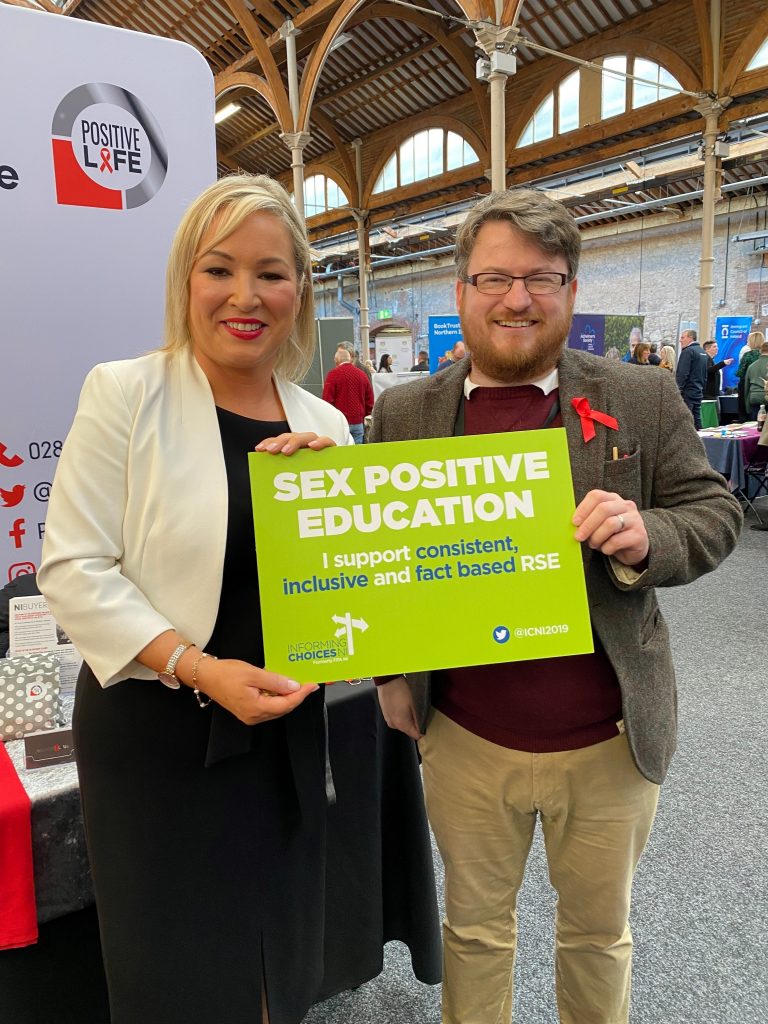
On 6 June 2023 the UK government announced that it is updating the Relationships and Sexuality Education (RSE) curriculum in Northern Ireland. The Secretary of State for Northern Ireland was under a legal duty to act following legislation passed by the UK Parliament. This enshrined into law recommendations contained within the Report of the Committee on the Elimination of Discrimination Against Women on access to abortion services.
CEDAW Inquiry
“Make age-appropriate, comprehensive, and scientifically accurate education on sexual and reproductive health and rights a compulsory component of the curriculum for adolescents, covering prevention of early pregnancy and access to abortion, and monitor its implementation.”
RSE Consultation
Following the publication of the Relationships and Sexuality Education (Northern Ireland) (Amendment) Regulations 2023, the Department of Education published a public consultation on this matter. You can view our response here. Following the consultation, the Department issued guidance to post-primary schools, which can be viewed here.
The change in legislation followed a series of reports and surveys which recommended RSE reform, some of which are outlined below.
Marshall Inquiry
In November 2014 an Inquiry into Child Sexual Exploitation in Northern Ireland published a report stating that LGB&T young people reported that RSE in schools rarely addressed same-sex relationship issues. A key finding highlighted that young people stated RSE is poor and called for the delivery of a wider and more consistent curriculum.
Gillen Review
An independent review into how the criminal justice system in Northern Ireland deals with serious sexual offence cases made a series of recommendations in May 2019. This included the need to include in the school curriculum for RSE on matters such as consent, personal space, boundaries, appropriate behaviour, relationships, fears of homophobia and transphobia, gender identity and sexuality.
Any Use Report
Research conducted by the Belfast Youth Forum in 2019 found that young people described the RSE they received in school to be ‘basic’, ‘unhelpful’, ‘useless’ and ‘biased’. 86% felt that school was the best place to receive RSE, yet only 66% said they had actually received RSE. 60% felt that the information they received was either ‘not very useful’ or ‘not useful at all’. The research recommended the adoption of a rights-based and proactive approach to RSE, that a curriculum programme should be co-produced with relevant interventions from young people, and that specialist staff deliver the subject.
MLA Survey 2022
A survey commissioned by ICNI highlighted that only 17% of MLAs believe RSE in schools is ‘satisfactory’. Results showed that 78% agree that there should be a standardised curriculum used in all schools, regardless of their ethos. 70% supported the introduction of a new Sexual Health Strategy which includes the implementation of consistent and inclusive RSE. 62% agree that children and young people should be taught about different family types and 60% agree that information regarding the availability of contraception and access to abortion should be included within RSE in all post-primary schools.
ETI Evaluation of the Preventative Curriculum
In April 2023 the Education and Training Inspectorate (ETI) published a Thematic Evaluation of the Preventative Curriculum in Northern Ireland. The report was based on responses from more than 14,500 primary and post-primary pupils and 500 schools. It found that there was considerable variation in the teaching of RSE, and highlighted that there was a lack of lessons on topics such as consent, domestic abuse, gender, transgender issues, contraception, pregnancy, abortion, and menstrual health and wellbeing. Despite the recommendations contained within the Gillen Review, outlined above, 44% of schools reported that they were delivering the topic of consent to a small extent, or not at all.
Northern Ireland Human Rights Commission
In June 2023 the Northern Ireland Human Rights Commission (NIHRC) published a report on Relationships and Sexuality Education in Post Primary Schools in Northern Ireland. This followed an investigation undertaken by NIHRC in this area. The report was published following the intervention by the Secretary of State for Northern Ireland to update the Minimum Content Order. It makes a series of recommendations regarding the implementation and monitoring of the subject including that the Department of Education should support schools to include students in co-developing and evaluating RSE policies.
We believe:
- All children and young people should have access to age-appropriate, comprehensive and scientifically accurate RSE in schools;
- RSE should start early and be relevant to children and young people at each stage of their development;
- There should be a standardised RSE curriculum across all schools in Northern Ireland, including Special Educational Needs schools, regardless of their ethos;
- RSE should be inclusive, and facilitated by trainers who are confident in talking about all issues relevant to the subject;
- RSE Awareness Training should be provided to all teaching staff;
- Programmes should be offered to parents and carers to alleviate any fears, and to assist them in supporting their children and young people in making informed choices; and
- All lessons should be assessed and evaluated to ensure consistency, with young people playing a key role in this process.
